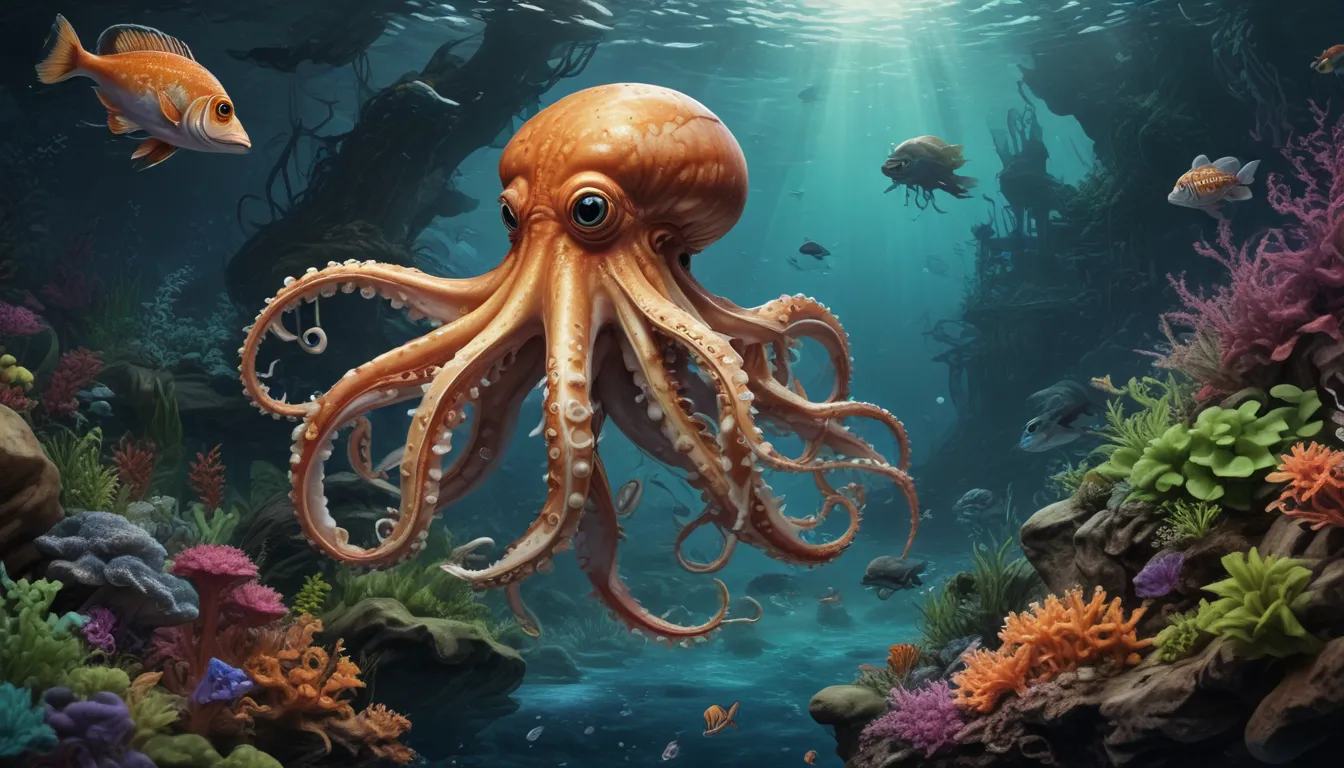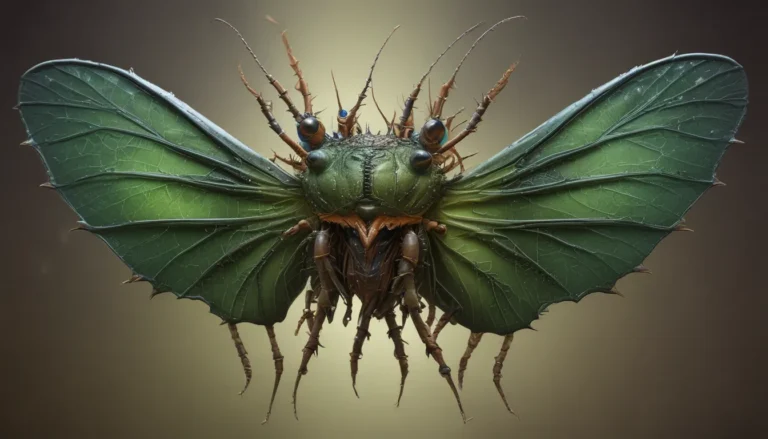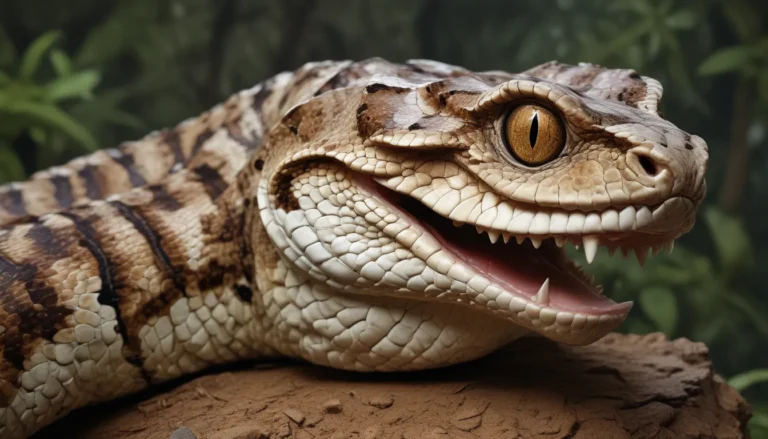The pictures we use in our articles might not show exactly what the words say. We choose these pictures to make you interested in reading more. The pictures work together with the words but don’t take their place. The words still tell you the important facts.
Squids, with their mysterious and elusive nature, have long intrigued humans with their unique characteristics and behaviors. Belonging to the cephalopod family, squids possess a variety of traits that make them truly captivating creatures of the deep sea. From their impressive intelligence to their remarkable ability to change colors, squids have become the focus of scientific research, conservation efforts, and popular culture references.
Unveiling the Secrets of Squids
Embark on a journey into the depths of squid knowledge as we uncover 14 intriguing facts about these enigmatic creatures. Prepare to be amazed and astounded by the fascinating world of squids, from their extraordinary features to their unique behaviors that set them apart in the marine realm.
The Intelligence of Squids
Squids are renowned for their high level of intelligence, making them fascinating subjects for scientific study. With well-developed nervous systems, these creatures exhibit complex behaviors that showcase their cognitive abilities in the underwater world.
Master of Camouflage: Squids’ Impressive Abilities
One of the most remarkable features of squids is their ability to change color and texture, blending seamlessly with their surroundings. This camouflaging technique not only helps them evade predators but also allows them to surprise their prey with stealth and precision.
The Three Hearts of Squids
While humans have just one heart, squids boast three hearts that serve different functions. Two hearts pump blood to the gills, while the third heart circulates blood throughout the body, sustaining their vital functions in the ocean depths.
Eyes of the Giant: The Vision of Squids
Squids possess exceptionally large eyes compared to their body size, granting them excellent vision in the dimly lit depths of the ocean. These giant eyes aid in navigating their environment and locating prey with remarkable accuracy.
Shape-Shifting Abilities of Squids
Certain species of squids have the remarkable ability to rapidly change the shape of their bodies, elongating or shortening their mantle as needed. This unique adaptation provides them with a versatile advantage in hunting and evading predators in their underwater realm.
Propelling Forward: Jet Propulsion in Squids
Squids maneuver through the water with agility using jet propulsion, a unique method of movement where they expel water through a siphon to propel themselves forward at high speeds. This propulsion mechanism allows them to navigate swiftly and efficiently in their aquatic habitat.
Communication Through Chromatophores
Squids communicate with each other using specialized cells called chromatophores, which enable them to change the color and pattern of their skin for visual signaling. This form of communication helps them attract mates, ward off rivals, and convey messages underwater.
The Beak-Like Mouth of Squids
In place of traditional teeth, squids have a hard beak-like mouth used for tearing apart prey before consumption. This adaptation allows them to efficiently feed on fish, shrimp, and other mollusks in their diet.
The Giant Squid: Largest Invertebrate in the World
Claiming the title of the largest invertebrate, the giant squid can reach impressive lengths of up to 43 feet and weigh over a ton. These colossal creatures dominate the deep sea with their formidable size and presence.
Illuminating the Depths: Light-Producing Organs in Squids
Certain squid species possess light-producing organs known as photophores, utilizing bioluminescence to create intricate light patterns for various purposes. From communication and prey attraction to predator confusion, these light-producing capabilities serve vital functions in the dark ocean depths.
The Ephemeral Life of Squids
Most squids have relatively short lifespans, typically living for only 1 to 2 years. However, exceptions like the colossal squid can extend their lifespan up to 5 years, showcasing the diversity in longevity among different squid species.
The Art of Regeneration in Squids
In the face of adversity, squids exhibit impressive regenerative abilities, capable of regrowing lost arms or tentacles. This remarkable regrowth process enables them to recover from injuries and continue their normal activities in the ocean depths.
Culinary Delights: Squid Ink in Cuisine
Squid ink, prized for its dark color and unique flavor, features prominently in various culinary dishes around the world. From pasta and risotto to seafood delicacies, squid ink adds a distinctive taste and visual appeal to gourmet meals.
Speed Demons of the Sea: Squids’ Impressive Swimming Abilities
With recorded speeds of up to 25 miles per hour, squids demonstrate remarkable agility in swimming, enabling them to capture prey and outmaneuver predators with swift movements in the vast ocean waters.
Conclusion: Embracing the Wonders of Squids
Squids are truly captivating creatures that enliven the mysteries of the ocean with their unique features and behaviors. Whether marveling at their color-changing abilities or studying their intelligent behavior, squids continue to inspire and intrigue scientists and nature enthusiasts alike. By delving deeper into their physiology, behaviors, and ecological roles, we gain a profound appreciation for the diversity and marvels of the animal kingdom.
Frequently Asked Questions
- How big can squids grow?
-
Squids can vary in size, with the colossal squid reaching lengths of up to 46 feet, making it one of the largest squid species known.
-
What do squids eat?
-
Squids are carnivorous creatures that primarily feed on fish, shrimp, and other mollusks, using their tentacles to capture and immobilize prey before consumption.
-
Can squids change color?
-
Yes, squids possess the remarkable ability to change color, achieved through the manipulation of pigment-filled cells called chromatophores in their skin.
-
How do squids defend themselves?
-
Squids employ various defense mechanisms, such as releasing ink into the water to create a cloud that confuses predators, utilizing sharp beaks, and using tentacles to fend off attackers.
-
Do squids have predators?
- Yes, squids face natural predators in the ocean, including larger fish, sharks, seals, and certain whale species that prey on these cephalopods.
As you delve into the wondrous world of squids, their remarkable abilities and unique characteristics are sure to captivate your imagination and deepen your appreciation for the intricate beauty of these marine creatures. Explore further into the realm of cephalopods with our articles on squid nutritional facts, intriguing insights into the elusive vampire squid, and a comprehensive comparison between cuttlefish and squid to expand your knowledge and fascination with these enigmatic sea dwellers.
Discover, Learn, and Appreciate the Marvels of Squids
Our commitment to providing accurate and engaging content drives us to deliver valuable insights and information on the fascinating world of squids. Each fact shared on our platform is contributed by users like you, ensuring a diverse range of perspectives and knowledge. With our dedicated editors maintaining the highest standards of accuracy and credibility, you can trust in the authenticity and reliability of the facts we present. Join us in exploring, learning, and discovering the wonders of the animal kingdom, one intriguing fact at a time.






